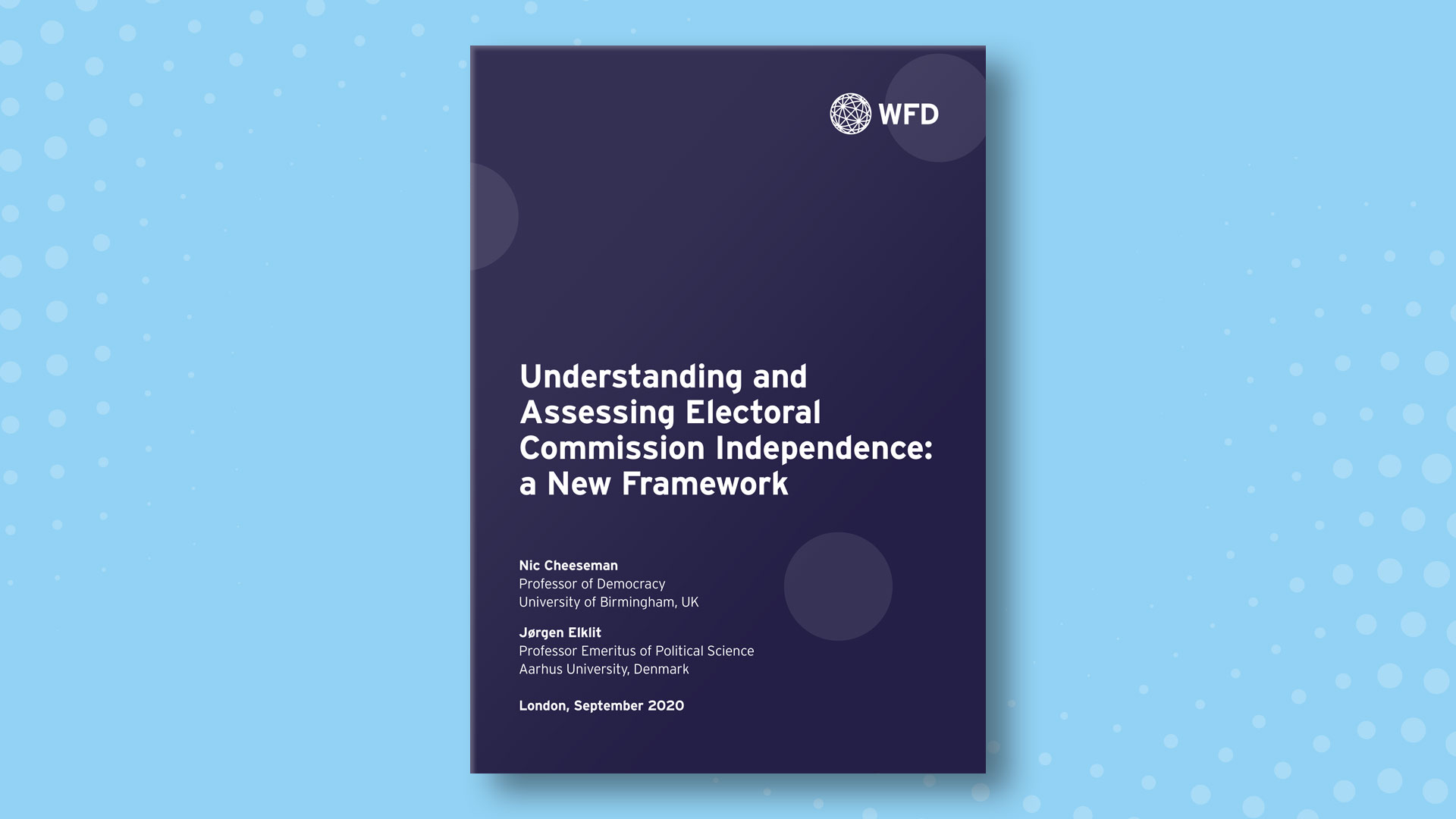Electoral commission independence is the extent to which electoral commissions can operate independently of political pressures and external interference. Electoral commission independence is an important driver of public perceptions of electoral integrity. As a result, it directly impacts on the legitimacy of those political parties and individual politicians who are elected to political office. A commission that is seen to be compromised is unlikely to be able to confer credibility on a contested general election.
In turn, this may undermine the legitimacy of the wider political system. Assessing the independence of electoral commissions is therefore important because it is an essential component of the kinds of electoral reform processes that can help to strengthen new democracies.
WFD’s new publication, Understanding and assessing electoral commission independence: a new framework, clarifys what electoral commission independence is and offers a framework for election observers, civil society groups, parties, journalists, and the public to use to assess the independence of a specific electoral commission.
How to understand and assess the independence of electoral commissions
The paper differentiates between formal or de jure independence and informal or de facto independence, and argues that both must be taken into account. Formal independence refers to the official rules as they are described in constitutional, legal, and other instruments. Informal independence refers to the extent to which these rules are followed in practice. In other words, it takes into account the degree to which, on a day to day basis, an electoral commission is free to take decisions and act in order to be able to deliver an election without undue political or external interference. Assessing both formal and informal independence is necessary, because the evidence shows that many commissions that have ‘independent’ in the title are nothing of the sort, and often the official rules are not respected in practice.
On this basis, the paper then proposes a comprehensive set of eleven criteria through which to evaluate electoral commission independence, grouped into three main categories of autonomy:
- institutional and leadership;
- functional and decision-making;
- financial and budgetary.
For each criteria, questions are provided to enable readers to evaluate the degree of independence in each case. The paper provides guidance on how these individual assessments can be combined to develop an overall assessment of whether an electoral commission is ‘highly independent’, ‘moderately independent’, or ‘not independent’.
This kind of evaluation requires making complex judgements about processes on which there is little reliable information. Indeed, given that the informal relations between the ruling party and the electoral commission can change very quickly, this process should not be seen as a ‘one off’ and a fresh evaluation should be done for every election. Given this, we encourage users to see the evaluation of electoral commission independence as an open-ended process that should include discussion among and between interested parties.
The paper ends with three brief case studies that demonstrate the challenge of conducting such evaluations in the cases of Albania, Kenya, and Nepal. While it is clear that none of these electoral commissions is ‘highly independent’, in some cases it is challenging to determine whether the commission is ‘moderately independent’ or ‘not independent’ at all.
These caveats notwithstanding, we hope that this paper will contribute to the development of a common method of assessing electoral commission independence and, indirectly, to the evolution of stronger and more independent electoral commissions around the world.
‘Understanding and Assessing Electoral Commission Independence: a New Framework’ is the product of Westminster Foundation for Democracy (WFD). It was made possible through funding received from the United Kingdom’s Foreign and Commonwealth Office (FCO) and the Department for International Development (DFID).

